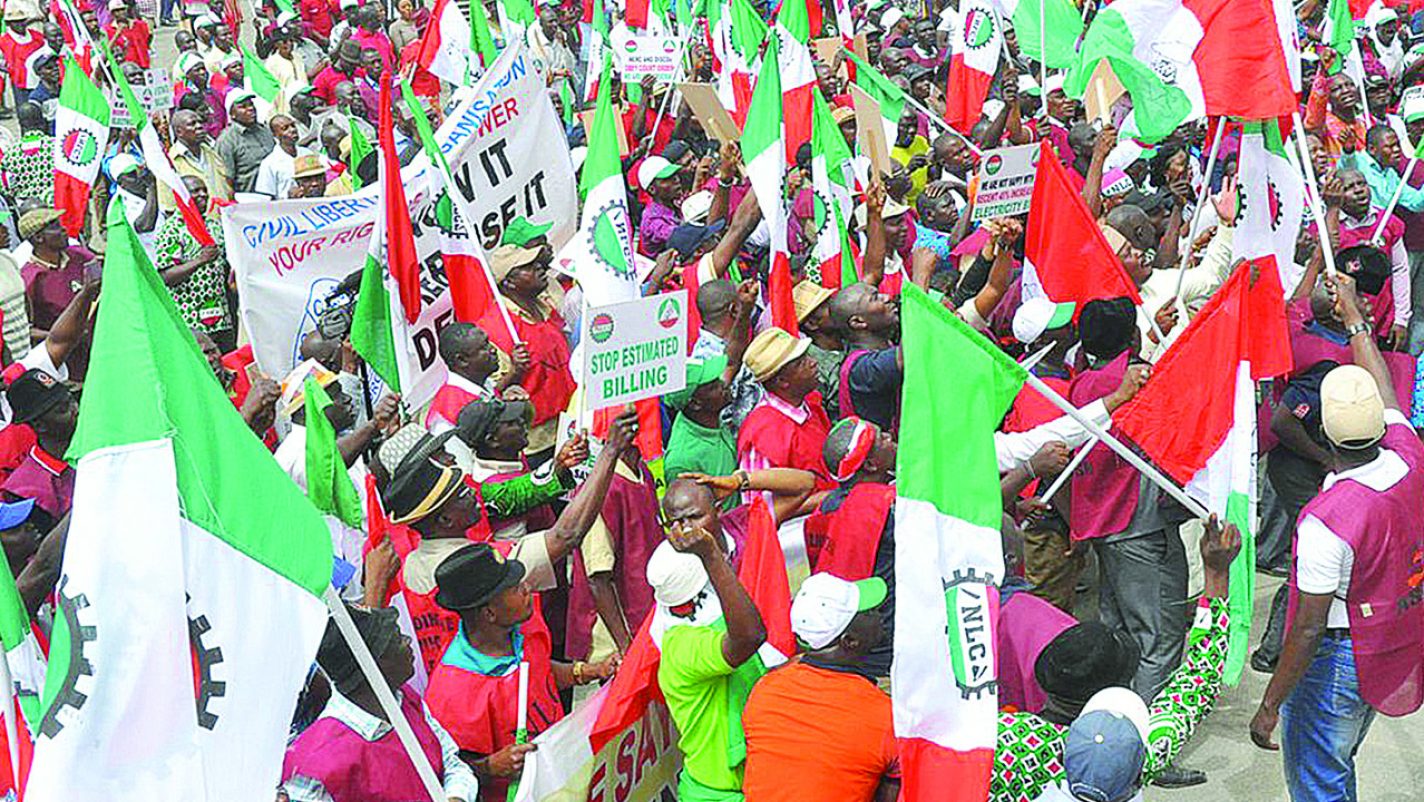
The President of the Nigerian Labour Congress (NLC), Joe Ajaero, has provided a detailed breakdown of how the union arrived at the proposed minimum wage of N615,000 for workers.
Ajaero explained that the new proposed minimum wage was derived from various components: Housing/Accommodation (N40,000), Electricity/Power (N20,000), Utility Water (N10,000), Kerosene/Gas (N35,000), Food (N9,000 × 30 = N270,000), and Medical (N50,000). Additionally, Clothing (N20,000), Education (N50,000), Sanitation (N10,000), and Transportation (N110,000) were factored in, totaling N615,000.
This breakdown was communicated in a statement issued on Friday.
According to Ajaero, “It has become imperative at this point to inform Nigerians, who may not already be aware, of the rationale behind our initial demand for a N615,000 new National Minimum Wage. This figure was the result of a meticulous effort to assess the cost of living for Nigerian workers and masses nationwide. It stemmed from independent research conducted by the NLC and TUC on the expenses required to meet the primary needs of an average family across the country. Our research was based on a family with both parents alive and four children, without the added burden of supporting other dependents.
“A comprehensive questionnaire was designed and distributed to all State Councils of NLC and TUC, which in turn forwarded these questionnaires to our members in every Local Government Area in the country to gather monthly living costs for the described average family. The summary of our findings is presented below, with the hope of providing clarity on the basis of our demand and fostering better engagement in the ongoing National Minimum Wage negotiation process.
“A quick review of the table above reveals that certain elements were deliberately excluded from the calculation basket. However, it’s important to note that expenses such as communication costs, religious offerings, community contributions, entertainment, savings, and security were not factored in. The figures provided represent only the bare essentials.
“It’s crucial to highlight that this figure was determined prior to the recent increase in electricity tariffs and the nationwide petrol scarcity, resulting in long queues and subsequent hikes in transportation fares. Any wage below this amount would essentially condemn Nigerian workers and their families to enduring poverty.
“Considering that the previous minimum wage expired on April 18, 2024, a new one was expected to take effect on April 19, 2024. However, due to the government’s failure to initiate negotiations for a new national minimum wage six months before the expiration of the existing one, the conclusion of the new wage has unfortunately been delayed.
“We trust that our social partners will recognize our demonstration of understanding, sacrifice, and reasonableness in our demands and promptly accept this figure. We also urge all well-meaning Nigerians to encourage the Government and Employers to meet our demands in the interest of justice, equity, and national development.”
Rice, a staple for Christmas celebrations in Nigeria, has become a luxury this year. Soaring…
Panic erupted on Saturday at a concert in Lagos when the stage collapsed during Odumodublvck’s…
The Federal Government of Nigeria has allocated ₦6,364,181,224 billion for the refurbishment and rehabilitation of…
The black market dollar to naira exchange rate for today, 22nd December 2024, can be…
The Nigerian National Petroleum Company Limited (NNPCL) has refuted claims that the 60,000 barrels per…
Manchester City finds itself in unprecedented turmoil, with relegation-level form showing little sign of improvement.…